
 Flash News
Flash News
Gunfire in Durres, a 30-year-old man is injured
Accident on Arbri Street, car goes off the road, two injured
Arrests of "Bankers Petrolium", Prosecution provides details: Exported and sold 532 billion lek of oil, caused millions of euros in damage to the state
Ndahet nga jeta tragjikisht në moshën 28-vjeçare ylli i Liverpool, Diogo Jota
Posta e mëngjesit/ Me 2 rreshta: Çfarë pati rëndësi dje në Shqipëri
OECD: Albania has deteriorated to 28% of the 2030 development objectives, education with the biggest decline
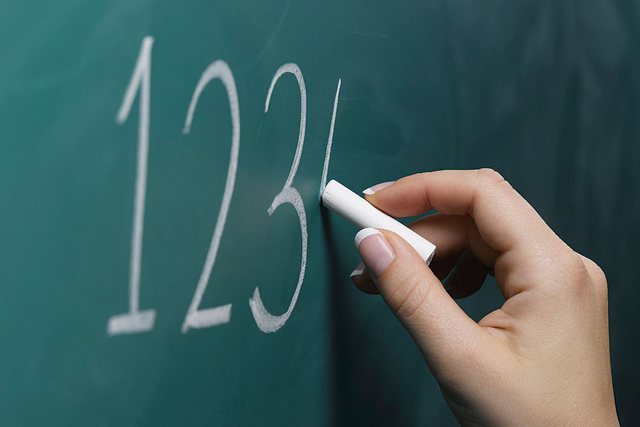
Albania has made moderate progress towards achieving the Sustainable Development Goals of the 2030 Agenda during the evaluation period in 2023, made by the Organization for Economic Co-operation and Development (OECD).
The well-known international organization analyzed in detail the developments in Albania in the last publication, where it noted that our country has made some progress in 30.9% of the indicators, while the performance has deteriorated in 27.9% of the indicators from the group of 17 main global objectives that must be realized until 2030.
While in some objectives, Albania has made poor progress or has remained stagnant, the education sector has a strong deterioration.
An educated society is the basis for sustainable development in the future, so the decline in the level of education in the country is a bad omen for all areas of social and economic development in the future.
The OECD analyzes that the government has integrated the Global Sustainable Development Goals into national and sectoral agendas, but progress remains weak because they have not been supported with a budget.
The analysis shows that Albania has maintained achievements in two areas, poverty (Objective 1) and climate action (objective 13), and is on the way to achieving clean water supply (objective 6) and reducing inequalities (Objective 10).
Progress has been more moderate in the area of affordable and clean energy (goal 7).
Meanwhile, the OECD points out that Albania has taken steps behind in the education sector (objective 4), with declining enrollment rates in pre-school and primary school.
In the PISA 2022 test organized by the OECD for testing the knowledge of 15-year-olds, Albania was ranked 62nd, among the 80 countries that participated in the test.
In the test results for the PISA 2018 program, Albania was positioned in 61st place, Albania's results marked a strong decline in relation to the results of the previous tests.
The PISA evaluations showed that Albania had suffered the biggest drop in results that a country has had in the entire history of the development of tests since 2001.
Albania has maintained its progress in eliminating extreme poverty since 2021 (target 1). Access to basic drinking water and sanitation services has increased throughout the population (both above 95%).
Health outcomes (target 3) remain positive and moderately improving, with target levels for 2030. But our country seems to have taken steps behind with declining infant vaccination rates and universal health service coverage.
Progress has remained stagnant in the sustainable development of cities and communities (goal 11). Improving access to water, transport and other services remain significant challenges.
Progress is also needed in the area of the circular economy (goal 12) and the protection of terrestrial ecosystems (goal 15). The most significant gaps remain in the areas of decent work and economic growth (goal 8), marine life (goal 14), justice and strong institutions (goal 16).
Economic progress and inclusion remain limited by a lack of access to financial resources across the population, high youth unemployment and a lack of basic employee rights.
Justice and strong institutions (objective 16) have remained in place due to continuous murders, high corruption, illegal practices of expropriation and the decline of press freedom./ Monitor
Latest news






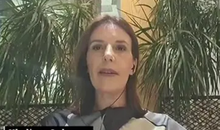

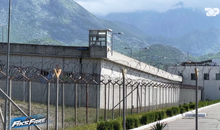

Greece imposes fee to visit Santorini, how many euros tourists must pay
2025-07-03 20:50:37
Don't make fun of the highlanders, Elisa!
2025-07-03 20:43:43
Gunfire in Durres, a 30-year-old man is injured
2025-07-03 20:30:52
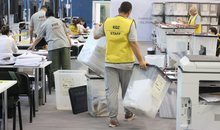
The recount in Fier cast doubt on the integrity of the vote
2025-07-03 20:09:03


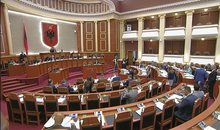

Heatwave has left at least 9 dead this week in Europe
2025-07-03 19:00:01

Oil exploitation, Bankers accused of 20-year fraud scheme
2025-07-03 18:33:52
Three drinks that make you sweat less in the summer
2025-07-03 18:19:35
What we know so far about the deaths of Diogo Jota and his brother André Silva
2025-07-03 18:01:56



Another heat wave is expected to grip Europe
2025-07-03 17:10:58

Accident on Arbri Street, car goes off the road, two injured
2025-07-03 16:45:27

Accused of two murders, England says "NO" to Ilirjan Zeqaj's extradition
2025-07-03 16:25:05
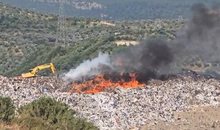

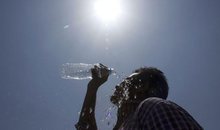

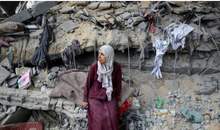
Gaza rescue teams: Israeli forces killed 25 people, 12 in shelters
2025-07-03 15:08:43
Diddy's trial ends, producer denied bail
2025-07-03 15:02:41

Agricultural production costs are rising rapidly, 4.8% in 2024
2025-07-03 14:55:13
Warning signs of poor blood circulation
2025-07-03 14:49:47
Croatia recommends its citizens not to travel to Serbia
2025-07-03 14:31:19
Berisha: Albania is the blackest stain in Europe for the export of emigrants
2025-07-03 14:20:19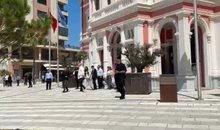


'Ministry of Smoke': Activists Blame Government for Wasteland Fires
2025-07-03 13:59:09

AFF message of condolences for the tragic loss of Diogo Jota and his brother
2025-07-03 13:41:36
Five healthy foods you should add to your diet
2025-07-03 13:30:19






A unique summer season, full of rhythm and rewards for Credins bank customers!
2025-07-03 12:12:20
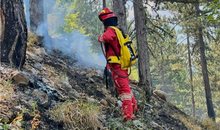
Fire situation in the country, 29 fires reported in 24 hours
2025-07-03 12:00:04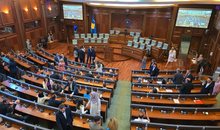
The constitution of the Kosovo Assembly fails for the 41st time
2025-07-03 11:59:57
The gendering of politics
2025-07-03 11:48:36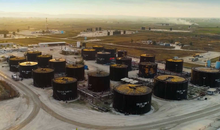
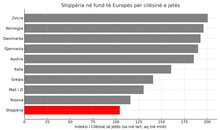
The price we pay after the "elections"
2025-07-03 11:25:39

Xhafa: The fire at the Elbasan landfill was deliberately lit to destroy evidence
2025-07-03 11:08:43

The 3 zodiac signs that will have financial growth during July
2025-07-03 10:48:01
Democratic MP talks about the incinerator, Spiropali turns off her microphone
2025-07-03 10:39:24

Ndahet nga jeta tragjikisht në moshën 28-vjeçare ylli i Liverpool, Diogo Jota
2025-07-03 10:21:03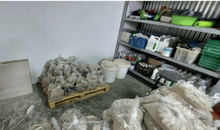
Cocaine trafficking network in Greece, including Albanians, uncovered
2025-07-03 10:10:12

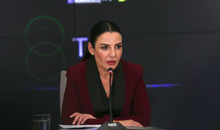

Korreshi: Election manipulation began long before the voting date
2025-07-03 09:39:13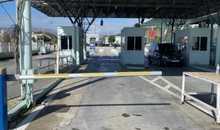
Arrest of Greek customs officer 'paralyzes' vehicle traffic at Qafë Botë
2025-07-03 09:28:41
After Tirana and Fier, the boxes are opened in Durrës today
2025-07-03 09:21:10
Enea Mihaj transfers to the USA, will play as an opponent of Messi and Uzun
2025-07-03 09:10:04

Foreign exchange, the rate at which foreign currencies are sold and bought
2025-07-03 08:53:50
Index, Albania has the worst quality of life in Europe
2025-07-03 08:48:10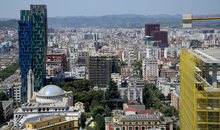


Horoscope, what do the stars have in store for you today?
2025-07-03 08:17:05
Clear weather and high temperatures, here's the forecast for this Thursday
2025-07-03 08:00:37
Posta e mëngjesit/ Me 2 rreshta: Çfarë pati rëndësi dje në Shqipëri
2025-07-03 07:46:48



Lufta në Gaza/ Pse Netanyahu do vetëm një armëpushim 60-ditor, jo të përhershëm?
2025-07-02 21:56:08
US suspends some military aid to Ukraine
2025-07-02 21:40:55



Methadone shortage, users return to heroin: We steal to buy it
2025-07-02 20:57:35
Government enters oil market, Rama: New price for consumers
2025-07-02 20:43:30
WHO calls for 50% price hike for tobacco, alcohol and sugary drinks
2025-07-02 20:41:53



